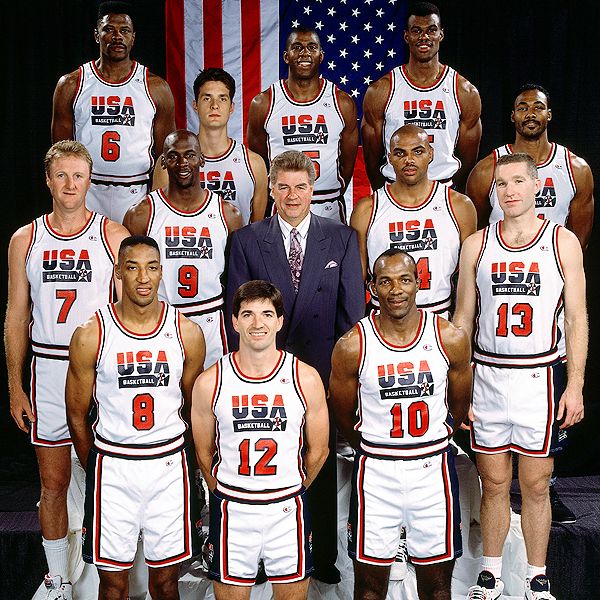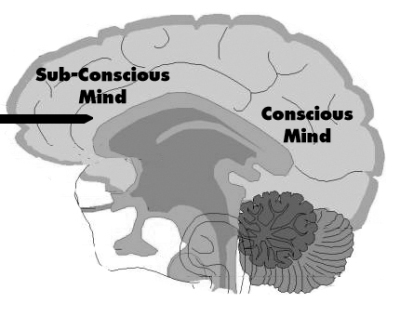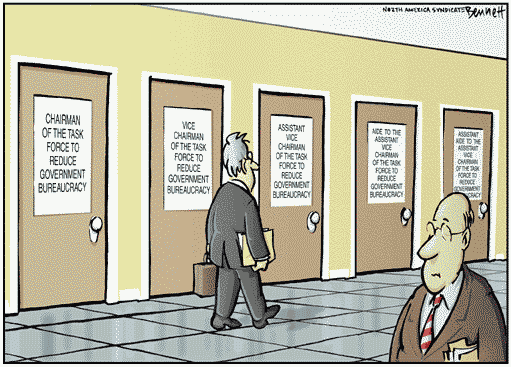Competition ensures that winners won’t buy their own excuses.
 Competition, a concept much loved by anyone attending a professional sporting event, seeks to have the best contend against the best for the enjoyment of all. Top level competition reminds me of my youth, when NBA legends Larry Bird and Earvin “Magic” Johnson, both intense competitors and quintessential winners, were first entering the professional ranks. The battles between the Lakers and Celtics became legendary as each team made constant adjustments to improve against the other. The NBA turned into a fan favorite, selling out once empty stadiums, in a large part to the competitive greatness displayed by Bird and Magic. Sadly, competitive greatness, this key ingredient to keeping a country productive, is being lost in the business world as entrepreneurs, fed on a diet of government subsidies and tariffs, become more like bureaucrats than business owners. Can you imagine the outrage if, after a Lakers loss to the Celtics, the Laker team, rather than confront their lack of execution leading to the loss, instead chose to run to the California congress, seeking a tariff restriction against Celtic basketball the next time they entered California? I can see the arguments now in congress, the Laker team provides jobs for Americans, it has been an icon in the NBA for years, we cannot allow Laker basketball to fail; therefore, we must support a tariff restriction against the uncompetitive practices of the Celtics, those egregious winners. Ok, one might be thinking the author is getting carried away as there are no tariffs between states. This is correct, certainly one of the best decisions our Founding Fathers made was to eliminate all tariffs set up to protect the states against competition from other states. The Lakers are forbidden by law to seek protection against the Celtics and must learn to adjust to the competitive pressures applied by the Celtics, if they wish to compete and win. The Founding Fathers, although they understood the importance of each state having to compete on its own merits without tariffs, interestingly allowed tariffs on an international scale between countries, claiming the need to protect new American industries. They agreed with competition within the country, improving the output, quality and price, but wavered in principle when discussing competition amongst countries.
Competition, a concept much loved by anyone attending a professional sporting event, seeks to have the best contend against the best for the enjoyment of all. Top level competition reminds me of my youth, when NBA legends Larry Bird and Earvin “Magic” Johnson, both intense competitors and quintessential winners, were first entering the professional ranks. The battles between the Lakers and Celtics became legendary as each team made constant adjustments to improve against the other. The NBA turned into a fan favorite, selling out once empty stadiums, in a large part to the competitive greatness displayed by Bird and Magic. Sadly, competitive greatness, this key ingredient to keeping a country productive, is being lost in the business world as entrepreneurs, fed on a diet of government subsidies and tariffs, become more like bureaucrats than business owners. Can you imagine the outrage if, after a Lakers loss to the Celtics, the Laker team, rather than confront their lack of execution leading to the loss, instead chose to run to the California congress, seeking a tariff restriction against Celtic basketball the next time they entered California? I can see the arguments now in congress, the Laker team provides jobs for Americans, it has been an icon in the NBA for years, we cannot allow Laker basketball to fail; therefore, we must support a tariff restriction against the uncompetitive practices of the Celtics, those egregious winners. Ok, one might be thinking the author is getting carried away as there are no tariffs between states. This is correct, certainly one of the best decisions our Founding Fathers made was to eliminate all tariffs set up to protect the states against competition from other states. The Lakers are forbidden by law to seek protection against the Celtics and must learn to adjust to the competitive pressures applied by the Celtics, if they wish to compete and win. The Founding Fathers, although they understood the importance of each state having to compete on its own merits without tariffs, interestingly allowed tariffs on an international scale between countries, claiming the need to protect new American industries. They agreed with competition within the country, improving the output, quality and price, but wavered in principle when discussing competition amongst countries.
Let’s revisit our NBA analogy with a twist, more representative of international business conditions. Bird and Magic, even though intense competitors on the court, were good friends off the court, having a mutual respect for each other gained over the years. They, along with many other Hall of Famers (including Michael Jordan), joined together to create the 1992 Olympic Dream Team, possibly the most talented team ever assembled at one time to compete in the history of basketball. The Dream Team went on to dominate the Olympics, winning their eight games by an average of forty-four points, displaying the competitive greatness of the NBA athletes to the rest of the world. Imagine the response in America and the world if, before the Olympics started, the rest of the Olympic teams filed petitions to their local governments initiating a forty-four point tariff on competitive basketball teams entering from the USA market, arguing that the USA had implemented “unfair dumping” of Hall of Fame players into their home markets. Basketball teams imported from America would now start with a negative score of forty-four points against the home team players. The idea itself is ludicrous when discussing competitive sports, but accepted practice in international business, called tariffs. Tariffs are created, ostensibly to protect jobs in the home market, but actually to raise revenues of governments (like they don’t have enough of our money already) and to protect special business interest against more competitive international competitors by applying a tariff paid for by all consumer in higher prices. Basketball teams from around the world now routinely compete against the NBA’s best in Olympic competition without needing tariff protection from their local governments. The best in the NBA have lost to the best of other countries in world wide competition. Do you believe this would have happened had local governments implemented tariffs against American basketball players? Competition always benefits society by forcing all teams, companies, and organizations, to compete with the best ideas, plans and leadership in the world for the benefit of all consumers, allowing no special deals for uncompetitive coaches and players. We expect nothing less when it comes to competitive sports, but sadly lose our resolve when discussing competitive businesses.
Competition ensures that winners do not buy their own excuses. Everyone seems to love competition until the subject turns to their personal profession. Doing a 180, business people who profess a love of free enterprise principles, will start sounding like a socialist, demanding protection against competitive pressures in their industry. No one likes losing, but seeking protection against your own or your companies incompetence is not the answer. Only when honestly looking at why your company is losing, only when confronting the facts as they are, not as you wish them to be, will your company change and grow. It’s competition that keeps people and companies honest with their current performance. Without a scoreboard, or with a rigged scoreboard due to tariffs, true competition is not allowed to thrive, with the end customers paying the price a businesses lack of results. Tariffs increase the price of all incoming products into a country, leading to higher prices for the goods imported into the home market. Instead of local companies confronting and changing, they are allowed to retain their uncompetitive practices thanks to a protective tariff paid for by all consumers. Owners become wealthy, not by performance, but by government protection, creating special deals for the few at the expense of the many. Politicians are happy to help the business especially if that business is willing to help the politician get re-elected, creating a breeding ground of corruption; all because we allowed government into another area they do not belong.
Imagine a tariff as a blockade on foreign goods into the home market. Blockade? Isn’t this a war term, only happening when one country blocks another’s home market from receiving products of the world, with the hope of destroying the will to fight of the opponents citizens? That’s correct, but a tariff is even worse than a blockade, since its a blockade created by the citizens own government. A government mandated to protect its citizens becomes its citizens oppressor by blocking the free flow of superior goods at better prices by taxing the goods before they can enter the home market. countries own government against its citizens, making it easier to enforce than an enemy blockade. To break this blockade, companies must pay a tax to government officials to get into the market, called a tariff. Who ultimately pays for the tax? It’s not the companies as they must pass this on to the end consumer in order to receive a profit and stay in business. If the tax is too high, the product simply becomes unavailable in the market, making the government blockade on its own citizens complete, reducing the choices for consumers around the country, thus increasing prices in the home market. America must not be afraid to compete against the world, just as the world was not afraid to compete with America in basketball, focusing on improving themselves, not blockading the competition.
One might be thinking, this sounds good on paper, but what if foreign markets place high tariffs on American products? At the end of the day, all goods must be paid for by the trade from other goods with money as a medium of exchange for convenience sake. In other words, if a country doesn’t open up its borders to America, it hurts its own ability to trade with us, because we cannot buy their goods unless they allow us to exchange our goods with them. Creating reciprocal trade agreements among the nations, preferably lowering tariffs to zero, but certainly lower than the twenty, thirty even forty percent plus, routinely seen among countries should be the first order of business. The more trade, the more choices, the more effective the division of labor, thus increased production for all countries involved. The wealth of a nation is the production of a nation, not its ability to print money, nor its ability to tax the production of others. Sport teams would not leave the country if they were hit with thirty to forty percent reduction in performance levels, merely to enter another country’s market, subsequently hurting all customers (fans) of the game. Thomas Friedman wrote, “The World is Flat,” and he is correct. America can and will compete in the world market, not through tariffs, not through government intervention, but through the revitalizing effects of a scoreboard. When winners lose, winners change. All companies, organization, and individuals will experience losses, but winners experience losses only as a learning step to improvement and future wins. Government intervention through import taxes in the world economy must be reduced, and eventually terminated, so all countries can compete. This improves the quality of life for all by providing the best products at the best price to the end consumers with no special deals to preferred businesses.
One final thought, if you disagree with the freedom to trade principle discussed here, believing protection is good for jobs, good for a country etc, I cannot blame you. Having been indoctrinated from the news, schools, and politicians since birth, on the benefit of protection, its not surprising that freedom principles are not easily comprehended on the first exposure. A helpful technique in thinking is to apply the proposed principle into society and see where it leads. Let’s do this with the protection principle and imagine the fruit produced from this application en masse. Suppose we were to rescind the Founding Fathers ideas on state level tariffs and allow California to protect its products from the greedy Arizona manufacturers to name just two of the fifty states who will quickly implement tariffs. Increasing the prices of all products to consumers, increasing taxes to all states, decreasing trade and productivity of the country as a whole. If tariffs are good at the State level, then let’s apply tariffs at the county level as well, protecting Lapeer county from the competitive pressures of Genessee county in Michigan, to name just one of thousands counties and states that would implement tariffs. But we can go even further, let’s protect our subdivision against the competitive nemesis of our neighboring subdivision, implementing a tariff on any product bought from our “enemies.” Reducing still further, we end up finally, with each home against every other home in a dog eat dog world of tariff protection. If we believe in tariff protection, then carrying it to its logical conclusion, we end up with every house protecting its output from its neighbors goods, leaving division of labor in dust, taking us backwards further than the darkest of the dark ages. Division of labor allows each of us to use our gifts and skills in the way most beneficial to us and society increasing productivity by specialization. History teaches repeatedly that every increase in the division of labor has corresponded to an increase in productivity of the society at large; conversely, every decrease in the division of labor has led to a corresponding decrease in productivity of society at large.
The Founding Fathers correctly saw free competition among the states as a benefit to all citizens. I propose we take this concept one step further, instead of living in fear of competition, let’s thrive on it, opening up a “Flat World” to free trade, like the Founding Fathers opened up the states to free trade. If any country is willing to compete, reciprocating with the American market for low, if not not no, tariffs, then let’s begin free trade immediately for the benefit of the citizens in both countries. Free trade is the great engine for freedom around the world, relying on service to other countries needs for profits, not coercion of other countries for profits. Free competition makes all of us better, forcing us to confront weak areas, improving society and ourselves. God Bless, Orrin Woodward










